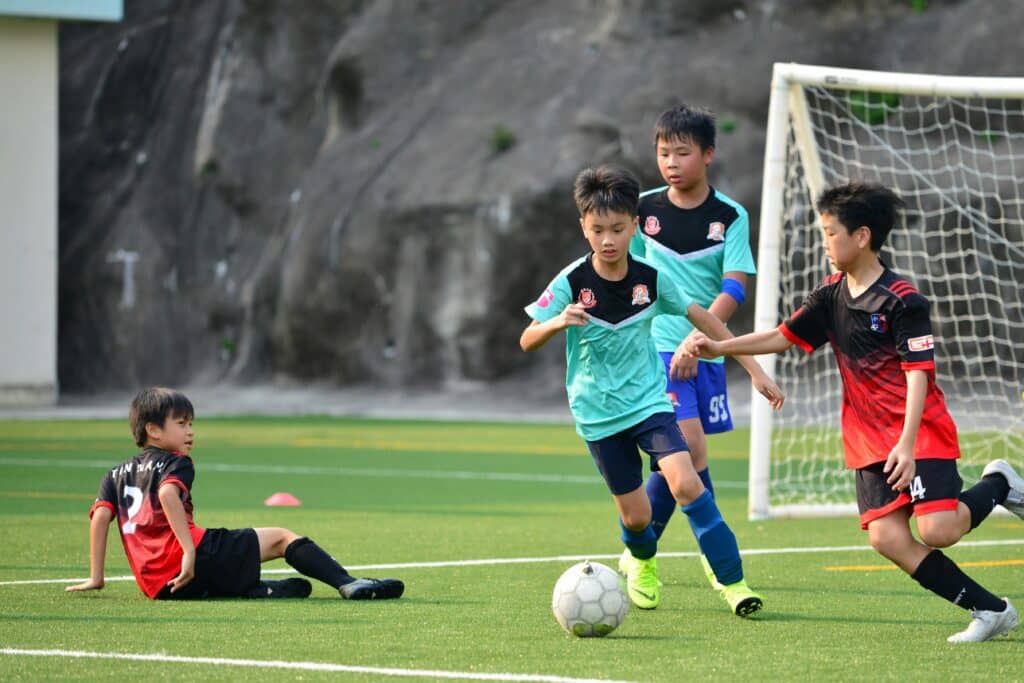Exploring Extracurricular Activities: 8 Tips to Help You Choose

You want extracurricular activities that actually match your interests and help you grow, not just pad your resume. This article digs into practical ways to pick activities that fit your passions, build real skills, and connect to your future plans.
1) Assess your interests and passions before choosing activities
Everyone says “follow your passion,” but what does that actually mean for extracurricular activities? Start by scribbling down what you genuinely enjoy, little hobbies, favorite subjects, or causes that matter to you.
Take a quick self-check: What topics make you lose track of time? What skills would you love to develop? Your answers will help you stick with extracurricular activities for the long haul.
Loop in friends, family, or a counselor—they might spot strengths or interests you miss. Sometimes, you need that outside nudge to notice what lights you up.
Dig into what your school and community offer. Find extracurricular activities that match your list and let you learn, lead, or just try something new.
Test out one or two activities for a short stretch. A trial run shows if you actually enjoy it and if it fits your life. Why commit before you’re sure?
When in doubt, go for depth over a scattershot approach. Sticking with an activity lets you improve and shows colleges you’re not just dabbling.
| Key Ideas | Quick Summary |
|---|---|
| Interest Inventory | List hobbies, subjects, and causes that excite you |
| Test & Reflect | Try activities briefly before committing |
Quick takeaways:
- Write down what genuinely interests you
- Ask for outside input—others see strengths you might miss
- Try before you commit to an extracurricular activity
2) Consider future career goals when selecting extracurriculars
Let’s be honest: extracurricular activities can shape your future, not just your present. If you have a career in mind, look for activities that build skills colleges or employers value, like teamwork, public speaking, coding, or event planning.
Pick extracurricular activities that let you try out tasks from that field. Want healthcare? Volunteer at a clinic or join science club. Eyeing tech? Build an app or join a coding team.
Look for roles with real responsibility. Leadership gigs, long-term projects, or event planning show you’re in it for more than a day. Colleges and employers notice that.
Use these activities to test career ideas before you lock in a major. You might love—or hate—what you try, and that’s valuable info for later.
| Key Point | Example |
|---|---|
| Career-Relevant Skills | Public speaking, coding, teamwork |
| Test Drive Careers | Clubs, internships, volunteering |
Quick takeaways:
- Pick activities that match your career interests
- Try leadership or long-term roles
- Use extracurricular activities to test what you actually like
3) Choose activities that develop skills you want to improve
Think about what you want to get better at. If you want stronger public speaking, join drama or debate. Need teamwork? Try sports or group volunteering.
Look for extracurricular activities that offer regular practice, not just one-off events. Consistency is what really builds skill and confidence.
Mix challenge with support. Pick activities that stretch you but also give feedback or coaching. That way, you grow without getting overwhelmed.
| Skill Focus | Sample Activity |
|---|---|
| Public Speaking | Debate Club, Drama |
| Teamwork | Sports, Group Volunteering |
Quick takeaways:
- Choose activities that match your skill goals
- Stick with activities for real progress
- Try short-term options if you’re unsure
4) Balance your time to avoid overcommitment
It’s way too easy to sign up for everything, but burnout is real. Make a weekly plan that shows classes, homework, practices, and meetings. Block out your non-negotiables first.

Limit yourself to two or three meaningful extracurricular activities. Quality trumps quantity every time. You’ll thank yourself later.
Track how long tasks really take. Sometimes, you’ll be shocked at how your time disappears. Adjust your schedule to match reality, not wishful thinking.
Give your priorities a number—high, medium, low. Focus on the high ones, and let the rest wait if you’re stretched thin.
Don’t forget buffer time. Short breaks help you stay focused and avoid burning out before finals even hit.
| Tip | Why It Matters |
|---|---|
| Limit Activities | Prevents burnout, improves focus |
| Track Real Time | Helps set realistic expectations |
Quick takeaways:
- Make a weekly plan—be honest about your time
- Pick two or three extracurricular activities, not five
- Build in breaks and learn to say no
5) Explore diverse options like sports, arts, and volunteering
Don’t box yourself in. Try extracurricular activities from different categories: sports, arts, volunteering. You might surprise yourself.
You don’t have to pick just one path. Sample a few clubs, join a trial practice, or sign up for a short volunteer shift to see what sticks.
Look for extracurricular activities that fit your schedule and energy. If you’re swamped, go for flexible or seasonal options.
Pay attention to what feels meaningful, not just what looks impressive. If you actually care, you’ll stick with it—and probably get more out of it.
| Activity Type | What You Gain |
|---|---|
| Sports | Teamwork, fitness |
| Arts | Creativity, expression |
| Volunteering | Community connection |
Quick takeaways:
- Try a mix of activities—you never know what you’ll love
- Choose what fits your current life, not just your resume
- Look for meaning, not just prestige
6) Prioritize activities that offer leadership opportunities
Leadership isn’t just for student council presidents. Pick extracurricular activities that let you take charge, make decisions, and guide others, even if it’s a small project.
Look for roles with real responsibility—officer spots, project leads, or just organizing an event. Those examples pop on applications and interviews.
Pick activities you actually care about. Leadership feels way less like work when you’re into the topic.
| Leadership Route | How to Start |
|---|---|
| Formal Role | Officer, team captain |
| Initiative | Start a project, mentor others |
Quick takeaways:
- Leadership isn’t just a title—take initiative anywhere
- Pick extracurricular activities you enjoy for leadership roles
- Reflect and ask for feedback after each experience
7) Seek activities that encourage teamwork and communication
Some of the best skills come from working with others. Choose extracurricular activities where you’re part of a team; sports, theater, or club projects force you to actually listen, speak up, and coordinate.
Go for roles that push your communication—team captain, club officer, or even just organizing a group project. You’ll learn to give clear directions and keep cool when things get messy.
Try activities that mix structured meetings with casual hangouts. You’ll build planning skills and learn the art of small talk (which, honestly, is underrated).
| Teamwork Boost | Sample Activity |
|---|---|
| Formal Collaboration | Sports, debate, theater |
| Leadership in Teams | Captain, event organizer |
Quick takeaways:
- Pick team-based extracurricular activities
- Rotate roles to build different skills
- Notice how you handle feedback and conflict
8) Evaluate how each activity fits your lifestyle and schedule
Start by jotting down your weekly commitments. School, work, family, and sleep—don’t ignore those basics, or you’ll regret it fast.
Compare your free time to the meeting schedule for each extracurricular activity. Some clubs meet once a week, but others want you every day.
If your mornings are packed with classes, a late-night rehearsal can really wear you out. Try to pick extracurricular activities that actually energize you, not drain you.
Travel time and hidden costs sneak up on you. If the activity’s across town or has big fees, that’s a real chunk out of your week and wallet.
Leave wiggle room for busy weeks. Exams, family stuff, or just feeling sick—life happens. Flexible extracurricular activities help you stay sane and actually stick with them.
Test the waters before signing up. Drop in for a couple of sessions, check the vibe, see if the pace works for you. It’s better to know before you commit, right?
How Extracurricular Activities Influence Personal Growth
Extracurricular activities shape your abilities and even your self-image. They give you a shot at learning real-world skills, trying leadership, and building confidence through hands-on experience.
Developing New Skills
You pick up technical and soft skills by jumping into tasks. The robotics club? You’ll wire, code, and design. Play in a band, and you’ll get timing, music reading, plus learning to listen—really listen—to others.
Repetition matters. Weekly rehearsals or matches help you build muscle memory and speed, while prepping for competitions forces you to plan projects and meet deadlines.
Group extracurricular activities teach you teamwork. You’ll need to communicate, split roles, and deal with disagreements. Those habits stick with you, in class and at work.
- Technical skills grow faster with hands-on practice
- Extracurricular activities improve project planning
- Teamwork gets easier when you work closely with others
Building Confidence
Facing challenges in extracurricular activities builds confidence. Whether you’re on stage, in a game, or presenting a project—seeing your own progress just feels good.
Mentors and peers give feedback, both the good and the “here’s what to fix” kind. You learn to take criticism and use it, which makes you less afraid to try tougher stuff.
Taking a leadership role, like team captain or club officer, really boosts your confidence. You’ll run meetings, organize events, and make decisions—sometimes on the fly.
- Real accomplishments build genuine self-belief
- Feedback in extracurricular activities helps you grow
- Leadership roles make you more comfortable speaking up
| Skill | How Extracurriculars Help |
|---|---|
| Technical Abilities | Hands-on practice, real projects |
| Teamwork | Group tasks, shared goals |
| Confidence | Facing challenges, feedback loops |
Aligning Activities With Academic and Career Goals
Pick extracurricular activities that give you skills you can put on college apps or résumés. Look for roles or projects with clear, measurable results you’ll be able to brag about later.
Connecting Interests to Future Opportunities
Try to match at least one extracurricular activity to your future career or major. Want engineering? Robotics or maker clubs are your best bet—especially if you can lead a project.
If medicine’s your thing, volunteer in a clinic, join a research program, or get involved with an anatomy club. You’ll pick up skills that actually matter in the field.
Track what you learn from each extracurricular activity. Write down specific skills, like CAD or public speaking. Keep a log or spreadsheet of dates, hours, and what you accomplished.
- Choose extracurricular activities linked to your goals
- Keep records of skills and achievements
- Hands-on experience makes your interest real
Gaining Real-World Exposure

Look for extracurricular activities that give you a taste of the real world. Shadow professionals, grab a summer internship, or help with community projects that match your intended field.
These experiences do more than fill a résumé—they help you figure out if you actually like the work. Plus, they show colleges and employers you’re serious.
- Internships and shadowing add credibility
- Community projects teach you practical skills
- Extracurricular activities help you test your interests
| Activity Type | Benefit |
|---|---|
| Career-Aligned Clubs | Skill development, leadership |
| Internships | Real-world exposure, résumé boost |
| Community Projects | Hands-on learning, network building |
Balancing Commitments Effectively
Figure out how many hours you can really handle each week before your grades take a hit. Don’t just join every club—long-term, steady involvement in extracurricular activities (think 8–12 months) usually looks better than a bunch of short stints.
Pick activities that actually let you lead or show results. Just being a passive member of an extracurricular activity doesn’t do much for your story.
- Steady, long-term roles in extracurricular activities matter more than quick, scattered ones
- Leadership and concrete achievements stand out
Set up a weekly schedule that carves out time for studying, meetings, and downtime. Try a basic priority system: A for essentials like classes or exams, B for valuable extracurricular activities, and C for things you could skip.
Check your list every month. If something in category C is getting in the way of A or B, just drop it. No shame in that.
- Schedule blocks for study, extracurricular activities, and rest
- Monthly review helps keep your priorities straight
| Tip | Why it Works |
|---|---|
| Stick to a few extracurricular activities long-term | Shows commitment and growth |
| Drop low-priority activities if needed | Prevents overwhelm and grade drops |
Talk to coaches, advisors, or teammates about your school workload. If you’re swamped, see if you can lead the planning stage of a project and then pass off the rest when finals hit.
That way, you stay active in your extracurricular activities, keep your record looking sharp, and avoid total burnout. Isn’t that what everyone’s after?
Conclusion

Finding the right extracurricular activities isn’t just about filling a schedule; it’s about figuring out what fits you.
So, which extracurricular activities are you going to try first—and what’s holding you back from jumping in?
References
Meier, Ann, et al. “A Quarter Century of Participation in School-Based Extracurricular Activities: Inequalities by Race, Class, Gender and Age?” Journal of Youth and Adolescence, June 2018, PMCID PMC6776430, https://www.ncbi.nlm.nih.gov/pmc/articles/PMC6776430
National Center for Education Statistics. “Extracurricular Participation and Student Engagement.” NCES, 1995, https://nces.ed.gov/pubs95/95741.pdf
Christison, Claudette. “The Benefits of Participating in Extracurricular Activities.” BU Journal of Graduate Studies in Education, vol. 5, no. 2, 2013, https://files.eric.ed.gov/fulltext/EJ1230758.pdf
College Board. “Extracurriculars Matter to You and to Colleges.” BigFuture, College Board, https://bigfuture.collegeboard.org/plan-for-college/stand-out-in-high-school/extracurriculars-matter-to-you-and-to-colleges
College Board. “How Can I Balance Academic Work and Extracurricular Activities?” BigFuture Help Center, College Board, https://bigfuture.collegeboard.org/help-center/how-can-i-balance-academic-work-and-extracurricular-activities
National Association for College Admission Counseling. “Factors in the Admission Decision.” NACAC, https://www.nacacnet.org/factors-in-the-admission-decision/
Organisation for Economic Co-operation and Development. “Are Students More Engaged When Schools Offer Extracurricular Activities?” OECD Education Working Papers, 2012, https://www.oecd.org/education/are-students-more-engaged-when-schools-offer-extracurricular-activities_g17a217c.html


Pingback: Ecstatic College Selection Guide: Choosing the Right College
Pingback: Educational Pathways: Bright Futures Ahead
Pingback: Unlock the Sensational Arts Education Benefits in School
Pingback: A Teen Investing Guide: Smart Strategies for Success